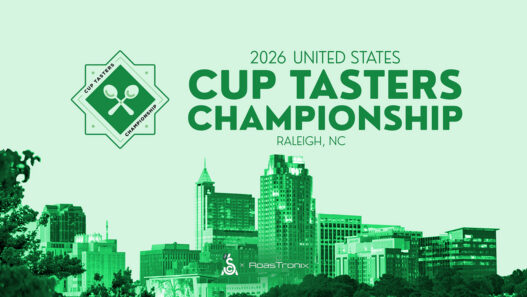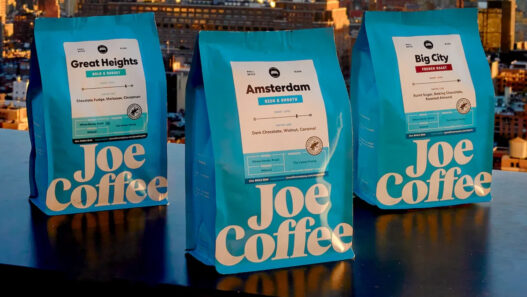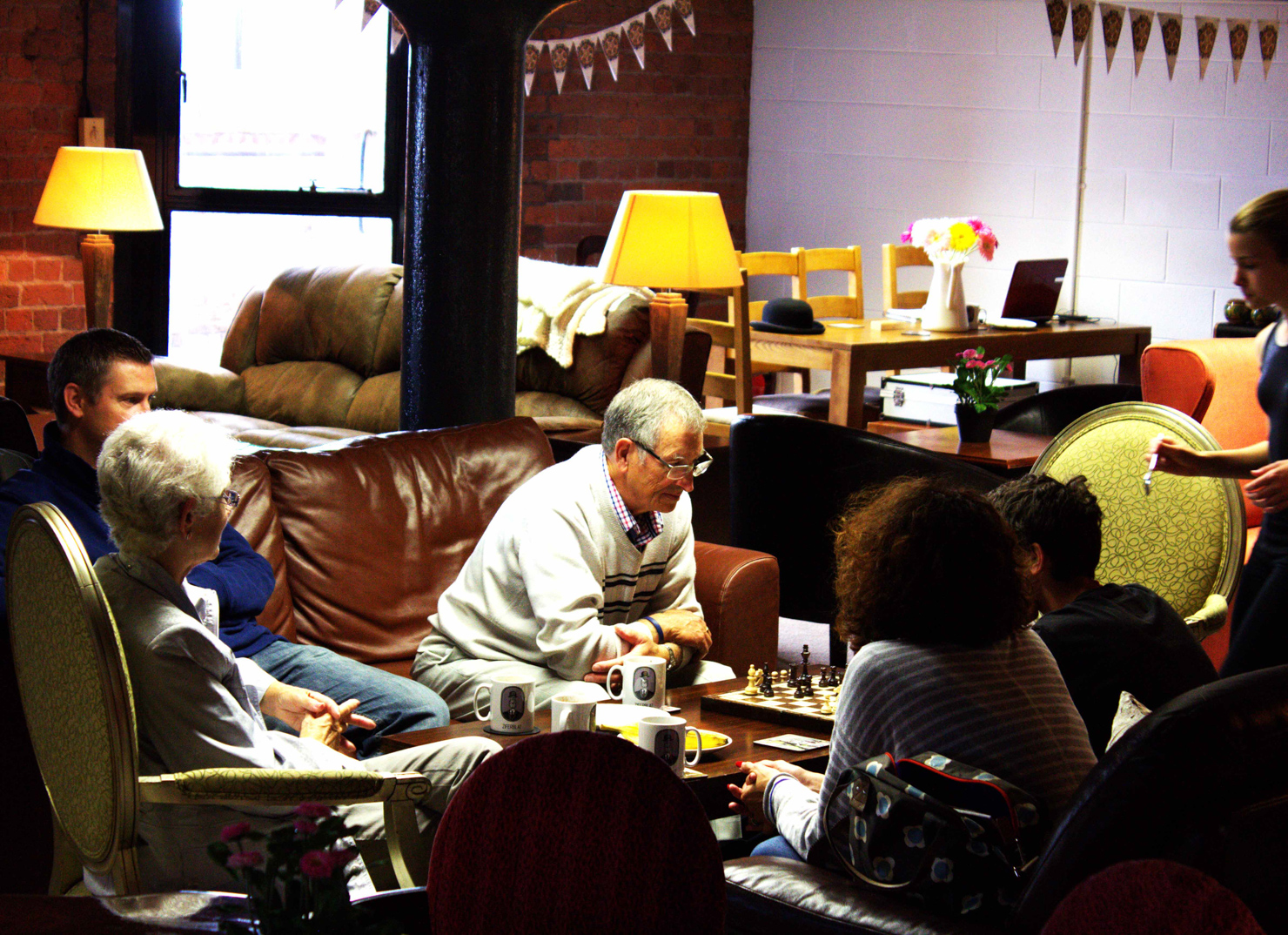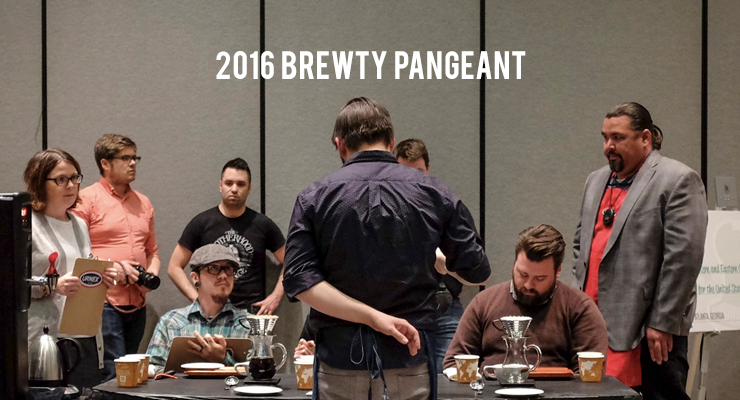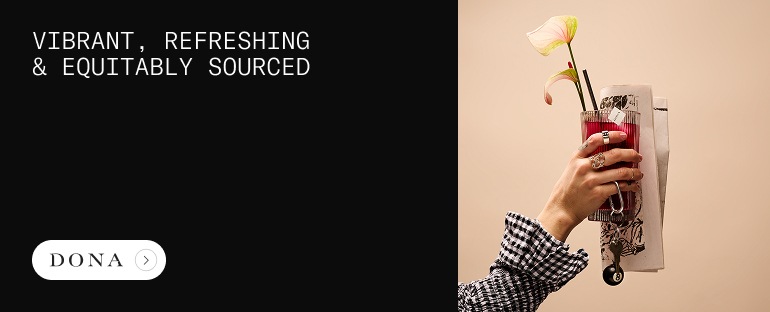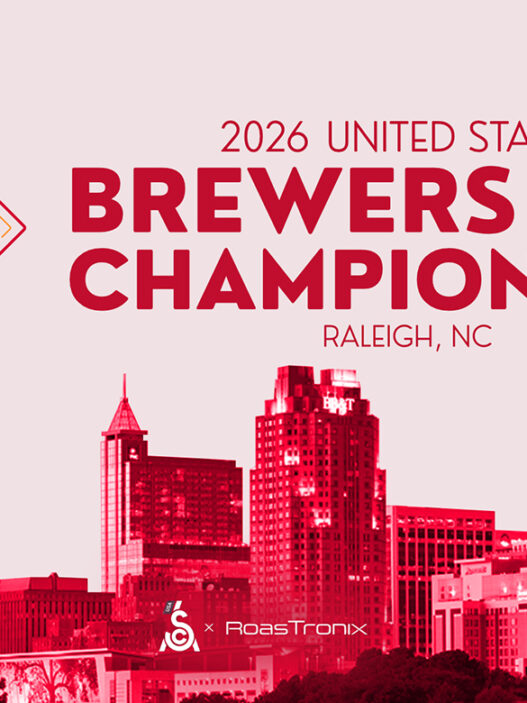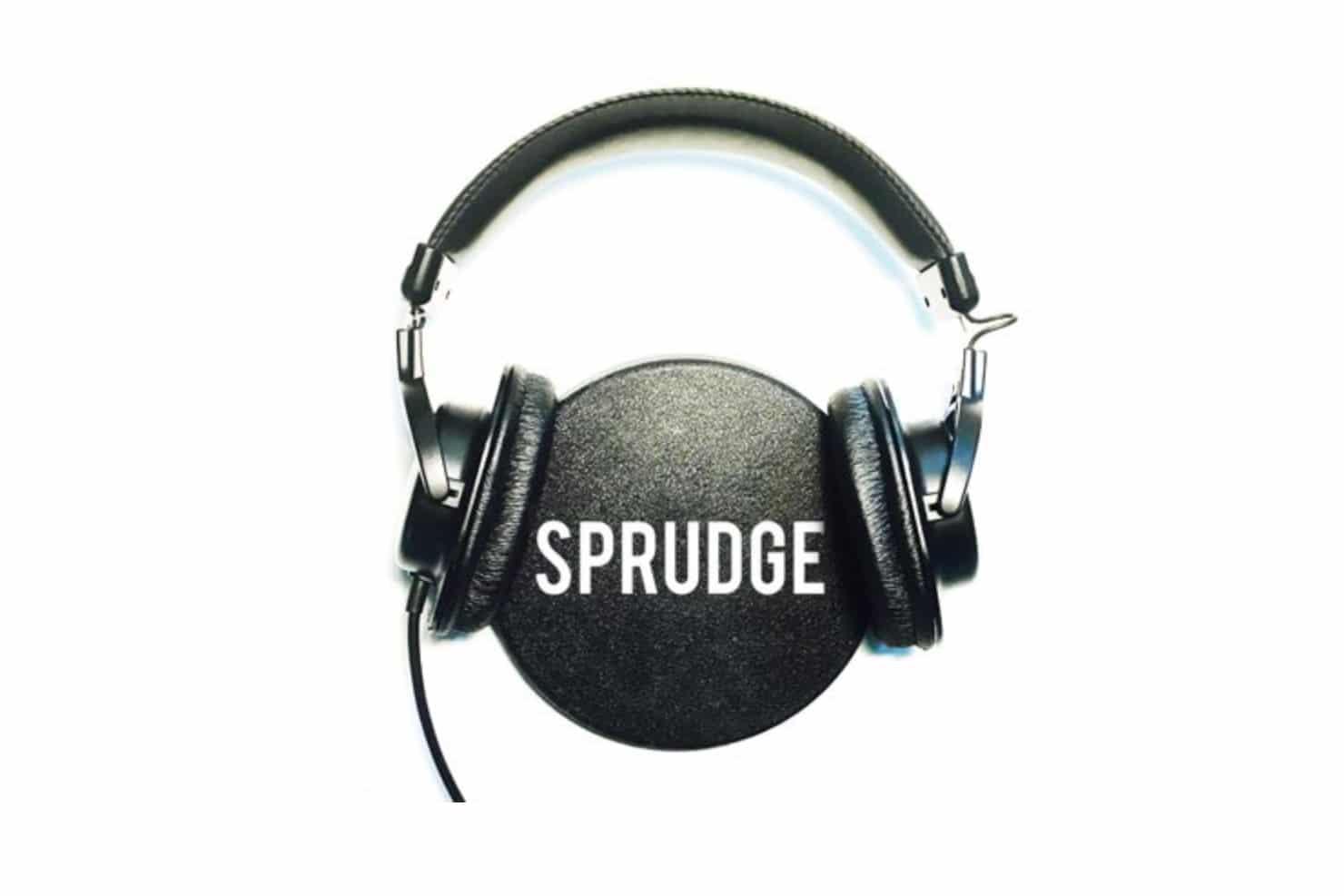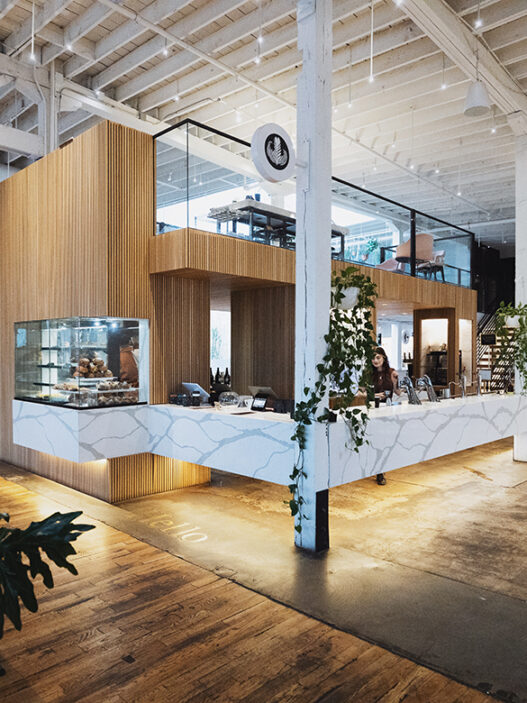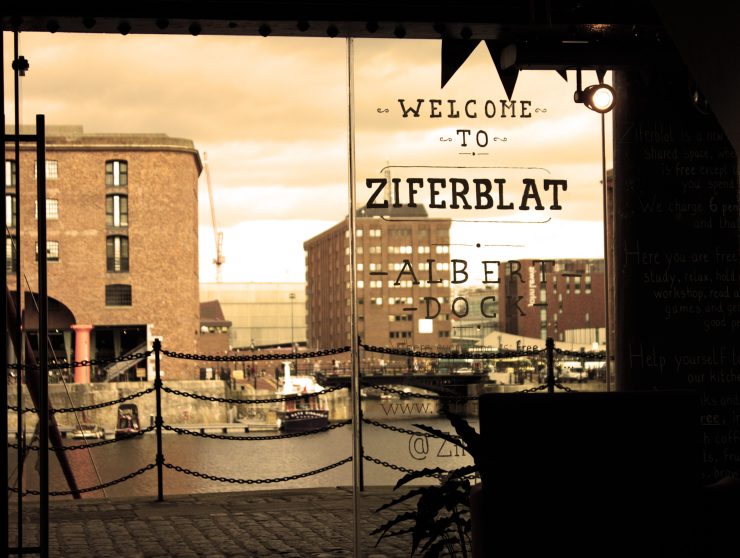
Is there something cyberpunk about Ziferblat? Could we find characters from a William Gibson novel in the Manchester branch? Sitting around, drinking coffee, and pondering a cafe, which is not a cafe, a coffee chain which is not…a coffee chain?
“Actually, people often say to us, are you a cafe?” Ben Davies, Ziferblat’s Head of Marketing, explains. “No, actually we are not,” he says. “What we are trying to do is create a shared sitting room space. It is as if you can rent space in a giant flat, sharing with other people.”
What’s different about Ziferblat (Russian for “clockface”) is that you don’t pay for anything consumed on the premises. Coffee, tea, cake, and biscuits are all free—you only pay for the time you hang around.
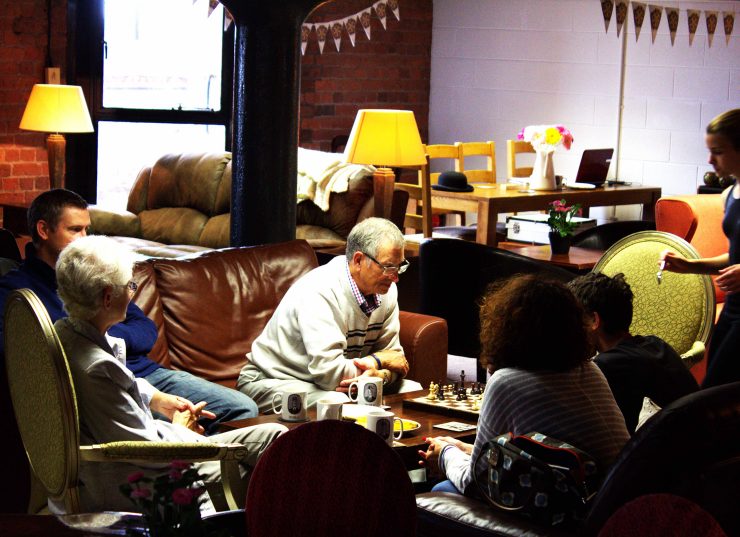
Average stay per customer is 1 hour 15 minutes, and the average spend, at a rate of six pence per minute, is £4.50 in Manchester and London. Rates differ a little by location—the Liverpool Ziferblat must charge eight pence per minute to help fund the expansion of the Liverpool premises.
Founded by CEO Ivan Meetin in Moscow in 2011, Ziferblat’s origins are found in a band of wandering poets. Having formed a collective in the Russian capital, the poetry group held meet-ups in bars and cafes. Facilities were often crowded and unsuitable, and members of the group had to pay and consume to stay. Eventually, they decided to rent their own independent space. Each of the members paid a donation to cover the cost, and individuals provided coffee, tea, cake, and biscuits. Meetin saw the potential, Ziferblat was born.
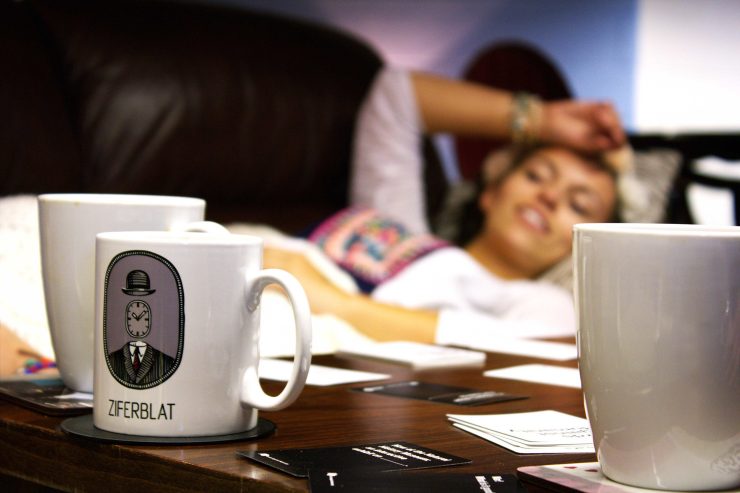
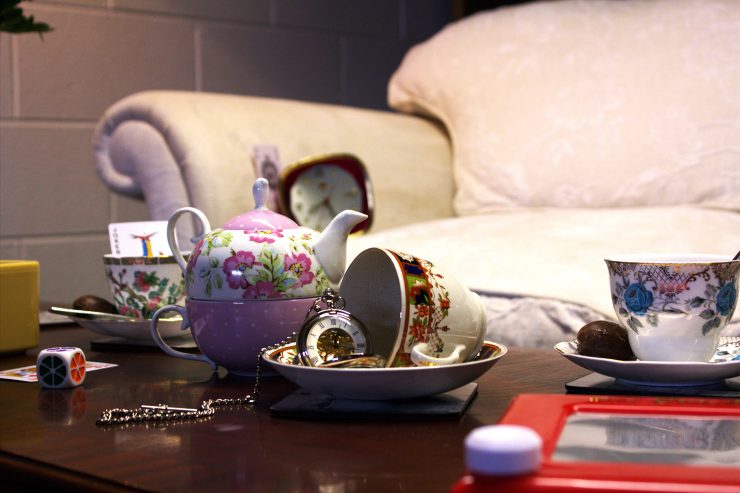
“Our plan is to open lots of these,” Davies told me. “But not in a chain fashion,” he insists. “In [cafes like] Costa, there will be people clinging to a lukewarm latte because they need Wi-Fi. People having business meetings, that probably should be confidential, in the middle of Costa. That’s why we have meeting rooms.”
Ziferblat uses a self-serve model. Its transitory micro-tenants are given a clock which they take to their table with them where they can work, chat with friends, read their newspaper, create, make coffee, eat cake, or play board games. Returning the clock after their stay, they only pay for the time that has elapsed during their residence.
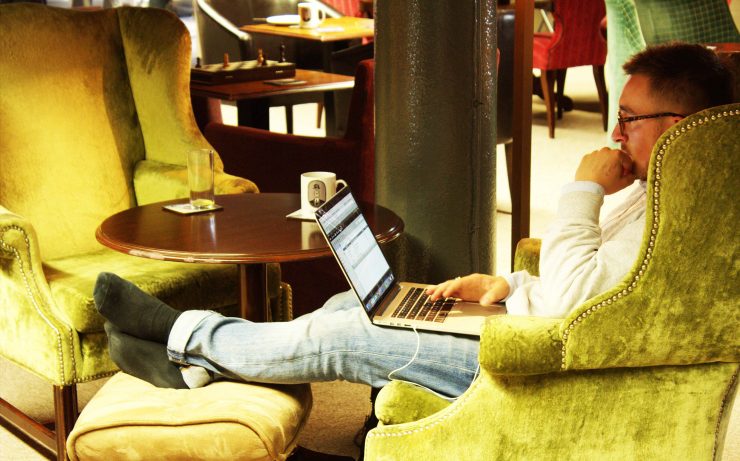
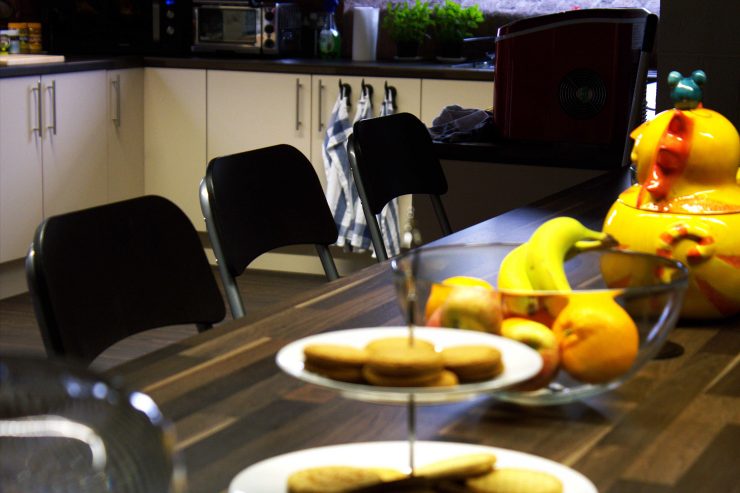
But, despite Davies’ protests, in Ziferblat you will still find some pretty impressive “coffee chain” comforts. The kind of syrups and dustings found at any Costa or Starbucks are freely available, if that’s your thing, allowing customers the judgement-free luxury to enjoy their favorite drink the way they want it. Buy time in Ziferblat and you are welcome to use all the facilities: coffee machine, ice machines, microwaves, kettles.
“We get a lot of professionals, a lot of freelancers who need a place to work,” Davies says of the typical customer at the Manchester Ziferblat, located in the Northern Quarter of the city. “People coming out for a coffee, students, a lot of people who live and work in the area, tourists. We are becoming strangely popular with bands before they go and play gigs, people from “Corrie” [Coronation Street] and Hollyoaks [another British soap opera].”
Coffee at the Manchester and Liverpool Ziferblats is roasted locally by Ancoats Coffee Company. Their “Ziferblend” is a mixture of Brazilian and Colombian beans, along with other seasonal varieties. Other Ziferblats—they emphasize again they are not a chain in the traditional sense—source coffee from other roasters selected for quality and ethics.
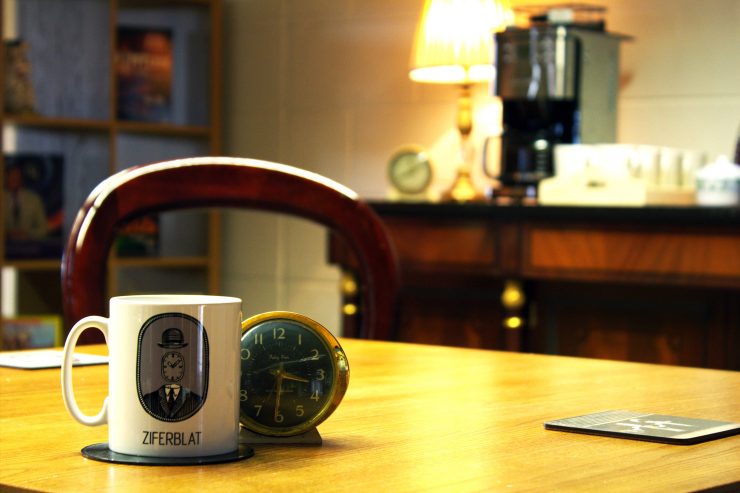
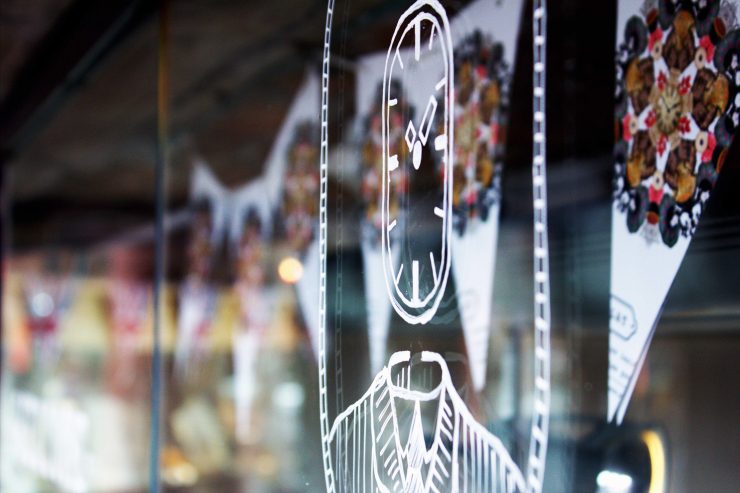
Cafe, coffee chain, or something remotely ethereal—whatever Ziferblat is, it now operates 14 European branches, including three in the United Kingdom, with plans for more. Edinburgh, for example, is now on their radar.
In his 2010 novel Zero History, William Gibson’s protagonist Milgrim, “needed Wi-Fi.” He arrives at a place called Bless, mistaking it for a bar. A bit like arriving at Ziferblat and mistaking it for a cafe…
So, will the economic model work? Only time will tell, and Ziferblat will assuredly be watching the clock.
Sergio Burns is a journalist at Ayrshire Magazine and an author based in Glasgow. This is Sergio Burns’ first feature for Sprudge.com.






